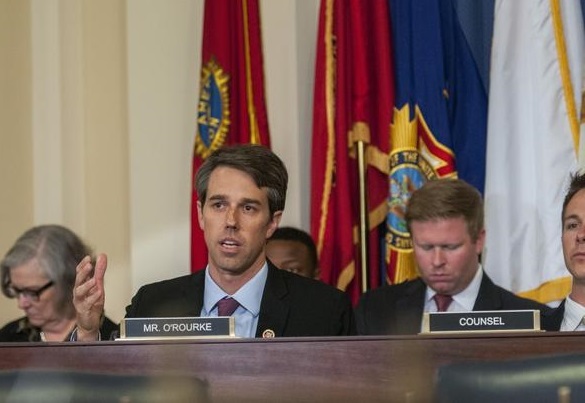
As part of a reporting trip to El Paso and Ciudad Juárez earlier last month, I spoke with El Paso’s congressman, Beto O’Rourke, by telephone, on January 27. The transcript follows below, and it encompasses essentially the entire interview with the congressman, a member of the Democratic Party and a former member of the El Paso city council. Congressman O’Rourke has represented Texas’s 16th district since January 2013.![]()

![]()
You will be able to read my piece on El Paso and Juárez — and how their interconnectivity belies the rhetoric of Donald Trump — shortly. But the more wide-ranging and thoughtful interview with Congressman O’Rourke is also worth a read, given that we touched on many topics, including Trump, the history of the El Paso-Juárez region, the US ‘war on drugs,’ income inequality in an international context and the Democratic primary battle between former US secretary of state Hillary Clinton and Vermont senator Bernie Sanders.
Kevin Lees: Thanks for talking to me today.
Congressman Beto O’Rourke: My pleasure.
KL: How much time do we have?
BOR: I have right now about 30 minutes.
KL: So when are you headed back to Washington?
BOR: Monday, and you probably know this, but we were supposed to be there this week.
KL: You missed a snowstorm!
BOR: I know! [small talk continues]
BOR: I’m interested in people’s impression of El Paso. We have a very large military installation here. And there are somewhere around 30,000 to 32,000 active duty service members, most of whom are not from El Paso. And you hear what they thought when they found out they were going to be posted to El Paso, which is almost always negative, and then [you hear] what their actual experience was when they got here, is almost always positive. In part because they really assumed and feared the worst, and so starting from such a low point it can only get better once they got here. But it is really beautiful. We’re in the Rocky Mountains, which people don’t expect when they are in Texas. Where the US and Mexico, and then Texas and New Mexico and Chihuahua all meet. There‘s no other place that I’ve ever been that is as extraordinary. I haven’t been everywhere in the world, but I’ve been to a lot of places, it’s really beautiful.
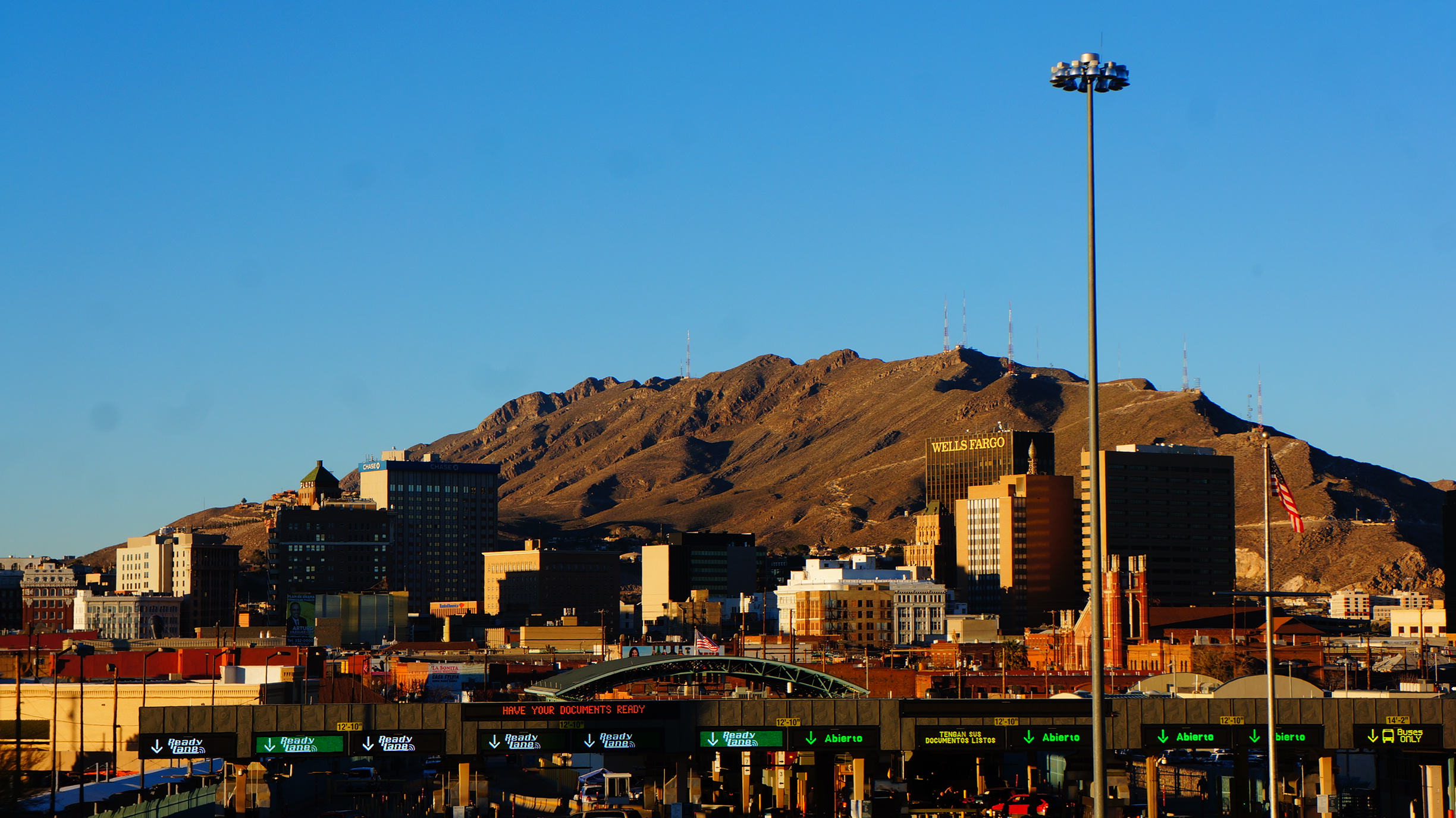
KL: And the culture is really a very bespoke culture, a sort of hybrid between American and Mexican culture. Its own borderlands kind of thing, where everyone sort of has a foot in two different countries. It’s very special to me. I thought it was a lot of fun.
BOR: I don’t know if you Snapchat at all, but we’re trying to connect with people to broadcast their views, information exclusively from Snapchat. Which apparently is big for a lot of people 14- to 24-year olds. And I’m trying to use it to show people what it is when they think about this region. So I used it for a run today along the Rio Grande and the Upper Valley of El Paso, and I kind of took a shot and posted it of ‘Over here is El Paso, this is Del Ray where Mexico, New Mexico, and Mexico all connect; this is a neighborhood in Juárez; all in one shot.’
It really kind of blows people’s minds when they see that or realize that we really are either at the end of the world, or the beginning of the world in terms of what your world is. Either the back door to the United States or the front door to the United States. Front door or back door to Latin America.
KL: One of the things that you realize when you are in El Paso and Juárez is the two cities function as sort of each other’s yin and yang in some ways. In what ways do you consider El Paso and Juárez the same city?
BOR: In a lot of ways, in ways that you can measure, our economies are completely interconnected. The peso is severely devalued, and that is causing severe economic pain in El Paso because so many of the retailers here depend on shoppers from Juárez. The last estimate I saw which was a few years old from the Dallas Fed says that Mexican nationals spend $1.4 billion in the El Paso retail economy.
To give you an idea of the interconnectedness, last year there were 30 million inspections on the international bridges. For perspective, a car crossing can have four people, and those are four inspections.
Anecdotally, people will tell you they have relatives that live in Juárez. They work or have family working in Juárez. There are people who go to school here, but live in Juárez.
The cities are linked in every way. Even physically by bridges. Juárez used to be called El Paso. We’ve both been ‘the pass’ and continue to be ‘the pass’.
In 2011 I wrote a book about the drug war from the perspective of El Paso/Juárez. I said El Paso is the more reserved of the two cities. And Juárez is a little bit more cosmopolitan and adventurous and energetic. For example, country-western is El Paso, vaudeville is Juárez.
Both cities are part of the same community.
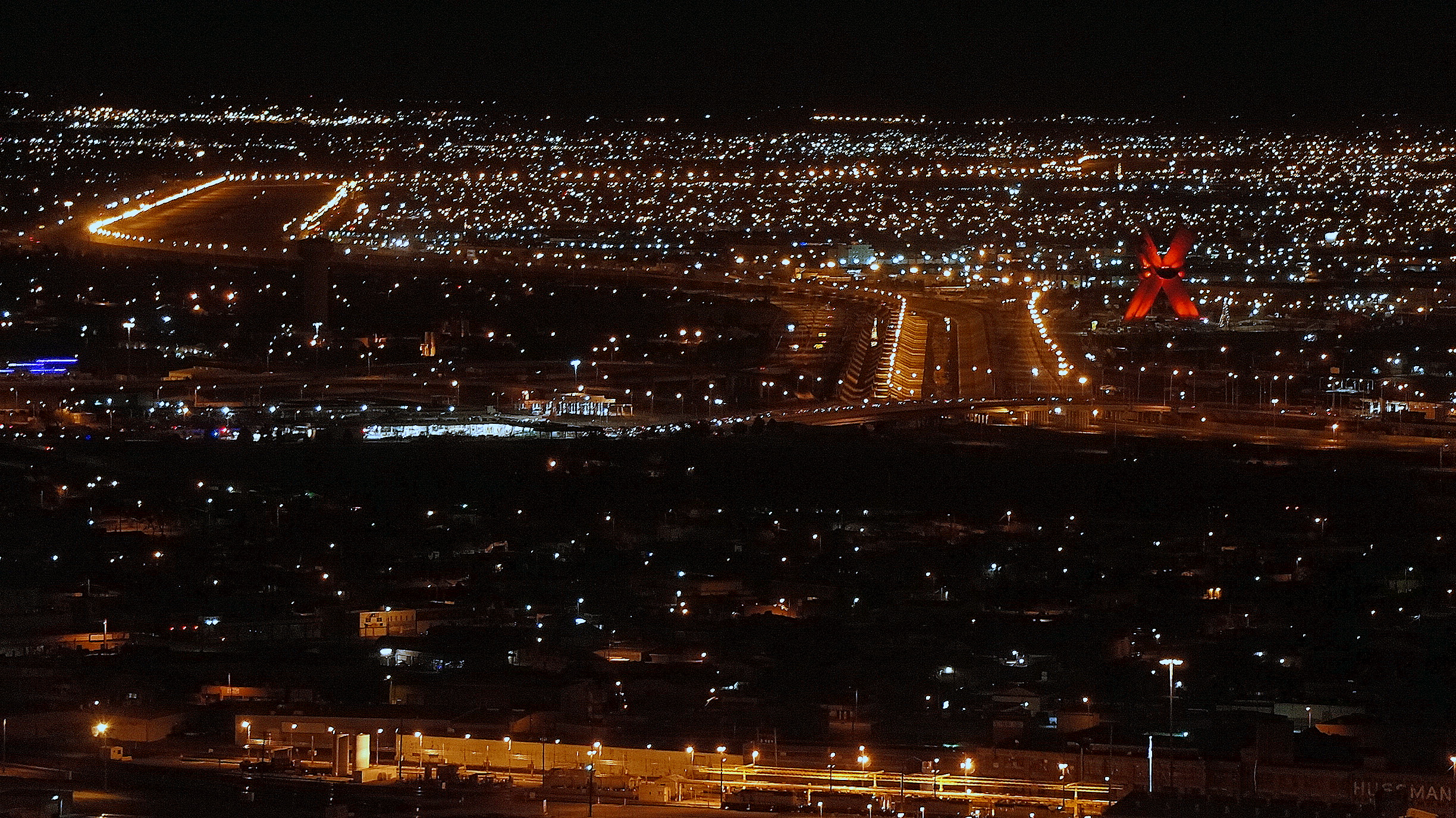
KL: It’s sort of an Apollonian/Dionysian quality. Which you notice when you are walking from El Paso to Juárez.
You yourself are a fourth generation El Pasoan. And the mayor is a native of Chihuahua. Do you yourself have any family in Mexico?
BOR: No. Both of my wife’s grandfathers were both born in Chihuahua.
It is interesting to me how many times you hear stories of people who have deep roots in Mexico. It shows you how connected these communities have been.
The neighborhood I live in, Sunset Heights, has a little plaque in one of the parks that shows that Sunset Heights was the first planned neighborhood in El Paso, and it was largely settled by Mexican nationals fleeing the Revolution in the earlier part of the 20th century. One of the streets is … Díaz? Named after the former dictator of Mexico [Porfirio Díaz]. I don’t think there are any streets in Mexico named after him, because my neighborhood was settled by partisans. And my house is called the ‘Pancho Villa House.’ He lived in El Paso before he was a revolutionary. During the Revolution, they tried to broker a peace deal between the US and Pancho Villa’s forces mediated by [US army general] Hugh Scott, and they met in my living room…. The Mexican Revolution was in many ways planned and staged and led out of El Paso by Pancho Villa and his group of revolutionaries. The two cities could not be more connected.
KL: I’ve actually talked to David Romo. It’s fascinating.
BOR: Great! That’s the best book on El Paso!
KL: When we think about the present day, more Mexicans are now leaving the United States, and they have been since the end of the last decade. So why, in your opinion, have Trump’s and [Texas senator Ted] Cruz’s calls to build a giant wall on the border resonated so much with the Republican primary electorate this year?
BOR: And maybe beyond the Republicans, right? I noticed that when the President was outlining his four initiatives for his immigration policy like a year ago or so, number one was ‘secure the border.’ So Democrats do it too.
I don’t know exactly how to explain it. Because, as you mentioned, more Mexicans are going south than coming north. We have record low levels for apprehension. Even when we have kids fleeing the Northern Triangle [of Guatemala, El Salvador and Honduras], there has never in recorded history any example of a terrorist attack, plan, or plot exploiting the southern border. And there have been those things on the northern border with Canada.
Yet, even Obama says that, ‘Before we can do anything else, we must secure the border.’ And so Trump is only singing the same tune, only louder and uglier.
I don’t think they are bad people for doing that. I think they are just really uninformed about the border. And it really is not easy to get here. There are no direct flights from DC. We are very isolated, Austin is a nine-hour drive. The nearest city of any significance is Chihuahua to the south and then Albuquerque to the north. We are isolated.
People can’t believe that we are a really safe place. The safest large city. And yet we are near this border that Trump claims is allowing in all these rapist, thugs and criminals. You need to come and see it for yourself. Much of America has the wrong idea about the border. Not just Republicans.
My job is to try to share the truth and the real facts about what’s going on here.
KL: It strikes me as a pattern of misinformation. That Juárez is a ‘war zone,’ that Mexicans are coming over in ‘droves,’ ‘committing crimes.’
When immigrants, here legally or not, are the least likely to commit crimes.
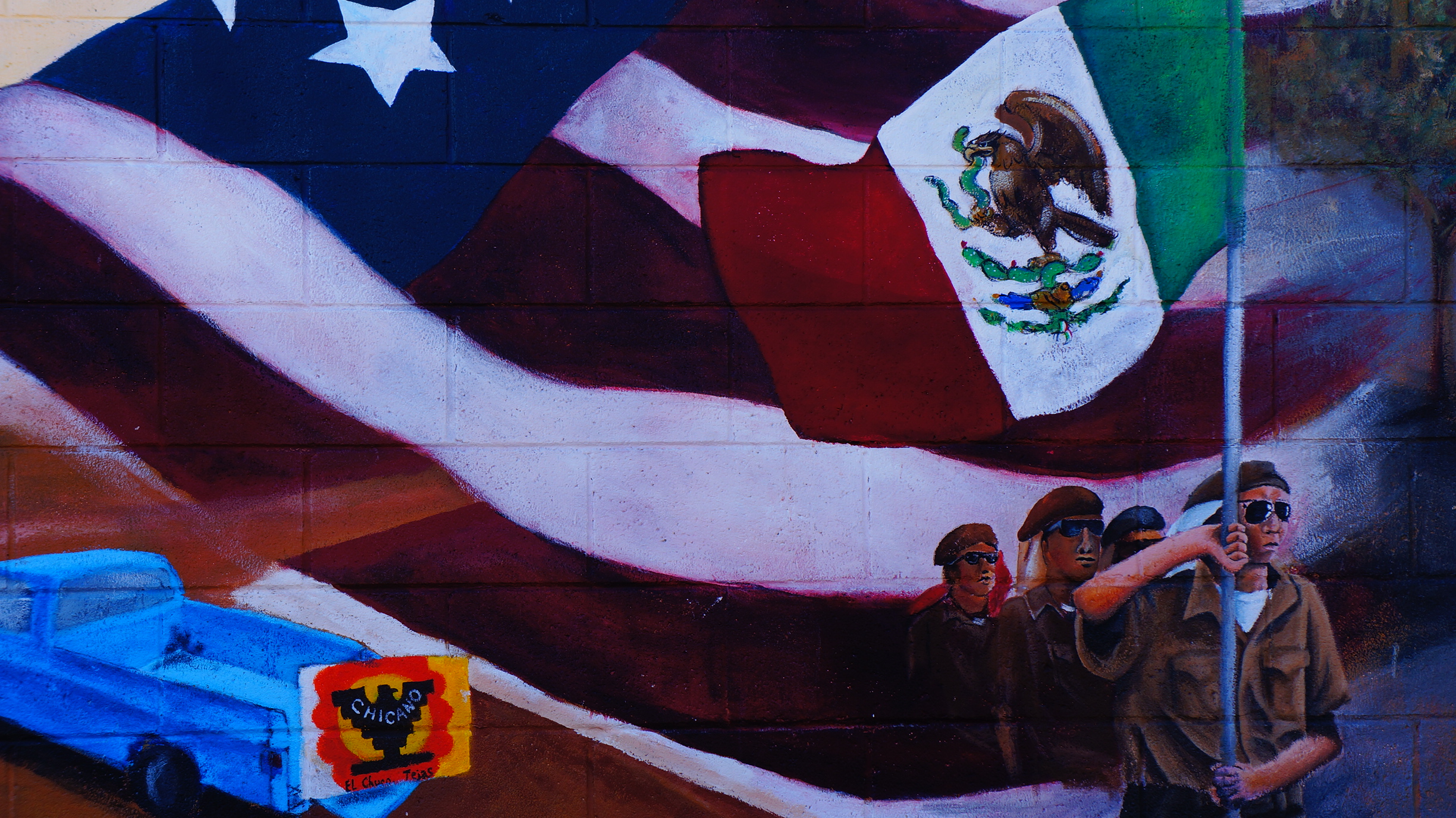
BOR: It’s really inconvenient to the narrative that 24% to 26% of the residents in El Paso County were born in another country. And I told people we are the safest city in America, in large part because of this. These families came here to do well and to be part of what they saw as the American Dream. They contribute to the community. Their kids do well in school. And that helps produce a very safe community. A community that most other parts of the country would really want to have.
I think it is very much human nature to be anxious and to fear those things we don’t understand.
A friend of mine went through the archives of the El Paso Herald-Post and found this great article from, I believe 1981 or 1982, and it had a screaming headline: ‘Suspected Libyan Terrorist Plot in Juárez.’ Because back then Libyan terrorists were the boogeymen. And they were going to use the border to come get us!
In that same paper there was an article about families fleeing the Northern Triangle because of the civil wars in which we were involved. It’s really interesting how what we are seeing today when [members of] Congress say they are hearing reports of al-Qaeda or ISIS coming in over the border with Mexico. It’s the same as they were saying 30 or 35 years ago about Libyans.
I think we’ve always feared the connection with Mexico. Because these are people who don’t speak the same language we do, or maybe don’t have the same values we do.
And Donald Trump just plays that like a violin.
KL: Do you often work with local or national officials in Mexico? If so, what kinds of interactions do you have with them?
BOR: Not a lot. I’ve met with the now-former mayor of Juárez. I would travel to dinner to have dinner with him to talk about improving ports of entry. He’d come to events we’ve hosted here.
I’ll meet with my counterparts in Mexico. I’ll travel to Mexico City and meet with even more members of their congress. But I would be hard-pressed to point to something we have worked on that has changed the position on the border.
In part because I’m still trying to learn how power is used in Mexico, and where it actually resides.
For example, on the US side there are many positions around our ports of entry, the bridges, [which] are owned locally. I believe the city of El Paso owns three of the bridges. The county of El Paso owns one of the bridges. The decisions made on the Juárez side tend to be made in Mexico City….
So I meet with my counterparts and we work on some issues, but I can’t tell you how successful that has been.
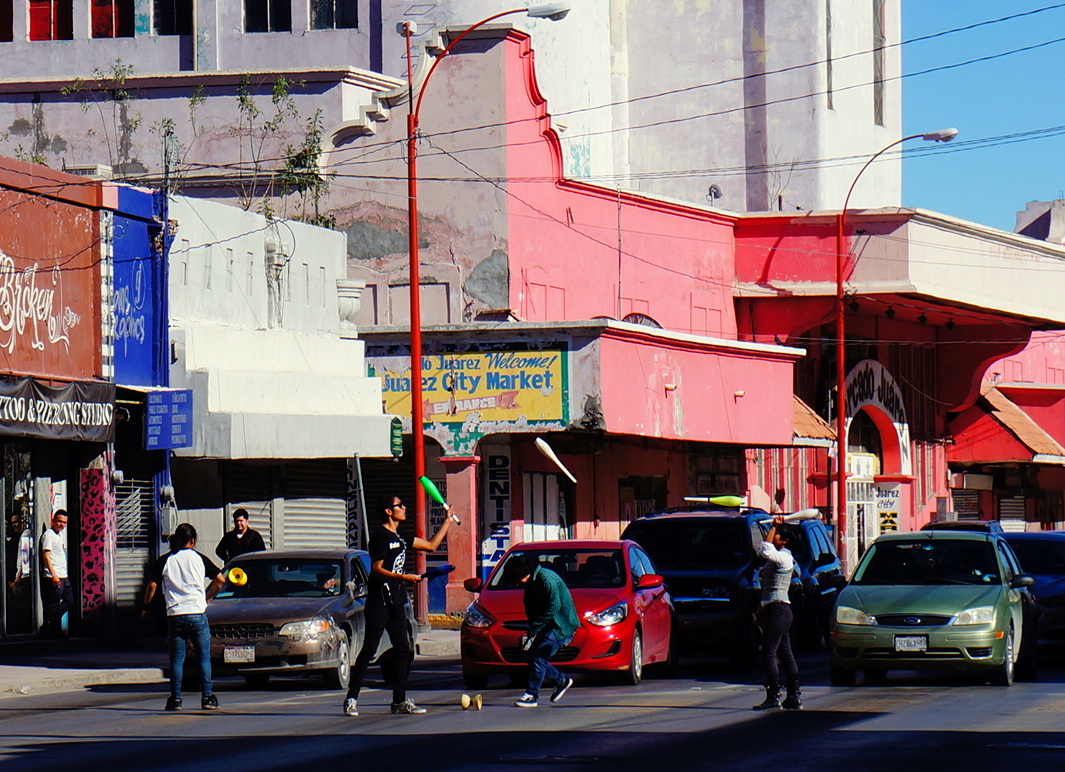
KL: Some of my friends in El Paso spent Martin Luther King, Jr. Day visiting their doctors in Juárez. And that struck me as one of the better examples of the liberalization of cross-border services because it means cheaper health care for Americans, but also good jobs for Mexicans as well. Do you think that’s a good thing? Is that an example of the ways in which free trade could work?
BOR: Good question. It may say something about how screwed up our health care system is. And it says a lot about the power of a market that is a little bit less regulated. You can get plastic surgery, prescription medications, surgeries of various complexity at a fraction of the cost in Juárez.
El Paso happens to have, last I checked, one of the lowest doctor-to-patient ratios in the country. Last I checked, we were on par with pre-Civil War Syria and Panama. So, on par with third-world developing countries… And we have one of the highest uninsured populations. I see that as very much a reflection of the United States, in El Paso in particular, in terms of health access and coverage and ability to see a doctor, and the fact that you’ve got folks who are willing to provide those services in Mexico it works, to a degree.
In fact, I have people on my team who, prior to enrolling in the ACA, were receiving their health care in Mexico. And these are people who were eligible for federal health care.
So best example of the two economies working together.

KL: One of the most important issues in early 21st century America is income inequality. You can see the effects of free trade along Mexico’s border. Jobs in Juárez that without NAFTA might be in China. But those are jobs that pay far less than many jobs, even in your district. Mexican workers obviously aren’t your constituents. But it seems to me that you’ve had to wrangle with these issues as a progressive and as a policymaker. And in a far more tangible way than your other colleagues in the House.
Is that a fair statement? Does that give you a different perspective on inequality?
BOR: Yes.
It’s something I’m really struggling with and trying to both understand and then determine how I can be most effective in improving those conditions.
Because the amount of money that Juarenses are spending in the El Paso retail economy [is significant]. If they are making $60 a week, and still buying some of your basic goods in El Paso because they are cheaper than they are in Juárez; for example, tariffs in Mexico versus tariffs in the US. It brings home that the folks in Juárez are really, in some cases, just barely scraping by, or not getting by at all. And those $60-a-week jobs stay at $60-a-week and stagnate while you’ve seen incomes in other parts of the developing world increase significantly in that same timeframe.
And so from a moral dynamic, which is the most important one, that is unsustainable. You can’t have people earning a wage that does not allow them to fully function and feed their families and be able to move up and forward. And then just from a selfish economic perspective, the people working in those jobs aren’t going to be able to afford goods and services in El Paso, not be able to consume more, or generate new opportunities. They can’t invest in homes or businesses. Become entrepreneurs.
So it isn’t only morally an issue to address, but it is an important issue to address economically. If we are ever to make it economically as a region, we need wages on both sides of the border to increase.
How do you do that? Can you ‘Bernie Sanders’ them, can you just berate them, and make them share? One of the hopeful developments, and I’m cautious about saying this because I don’t fully understand it, is the inclusion in the TPP language that would require all signatories to participate in the basic UN-adopted labor standards, which would include the right to organize, which functionally does not exist in Mexico, and certainly not in Juárez.
The unions there are a racket. The workers have no real say or leverage in improving workplace safety conditions and, ultimately, wages and opportunities.
So I see that as a role I can play. I haven’t made a decision on TPP. But [I want to make that decision] fully understanding the labor chapters on TPP and seeing if they are really enforceable. That would produce the change that I want to see in Juárez.
Also, perhaps I have the ability to bring more attention on the issue and sometimes that galvanizes public opinion and that is a factor. A concerning aspect of this, though, is that the companies that are investing in Juárez appreciate the people of Juárez and the community of El Paso. And I think they like being here. But they come here because their single greatest cost is labor, and they were going where they could find it the cheapest, and where it was still logistically feasible to get the products to their market with good quality.
So there may be a necessary tradeoff. It may mean less investment in these kinds of jobs as wages increase. Manufacturing employers might leave Juárez. But that can be a good thing. This is way above my level of comprehension on these things. At what point should we expect Juárez to transition from largely low-wage, low-skill to more a more developed, [service-based] economy where the residents of Juárez learn and use transferable skills. As we’ve seen in China and in Chicago a hundred years ago.
That I don’t know. And what is my role in it? How do I help?
I agree it is the issue of our age, or our binational community. We can use it as an opportunity. No community understands it intuitively the way El Paso-Juárez understands it.
KL: Pope Francis is visiting Juárez. Big news! Do you have plans to take part in any events while he visits?
BOR: I’m expecting to attend the mass in Juárez. And there was an attempt that we were part of (short-lived), that was ambitious, to construct at small bridge across the [Rio Grande] to allow the Pope to sort of walk across and put his hand on the border fence. I spoke to the diocese, to the bishop. I think that would have done so much to bring home to people how connected our two countries are. It would have been a powerful message.
He will be saying mass within eyeshot of El Paso. I think the plan is for his “Popemobile” to drive very close to the border so people on the El Paso side can see him.
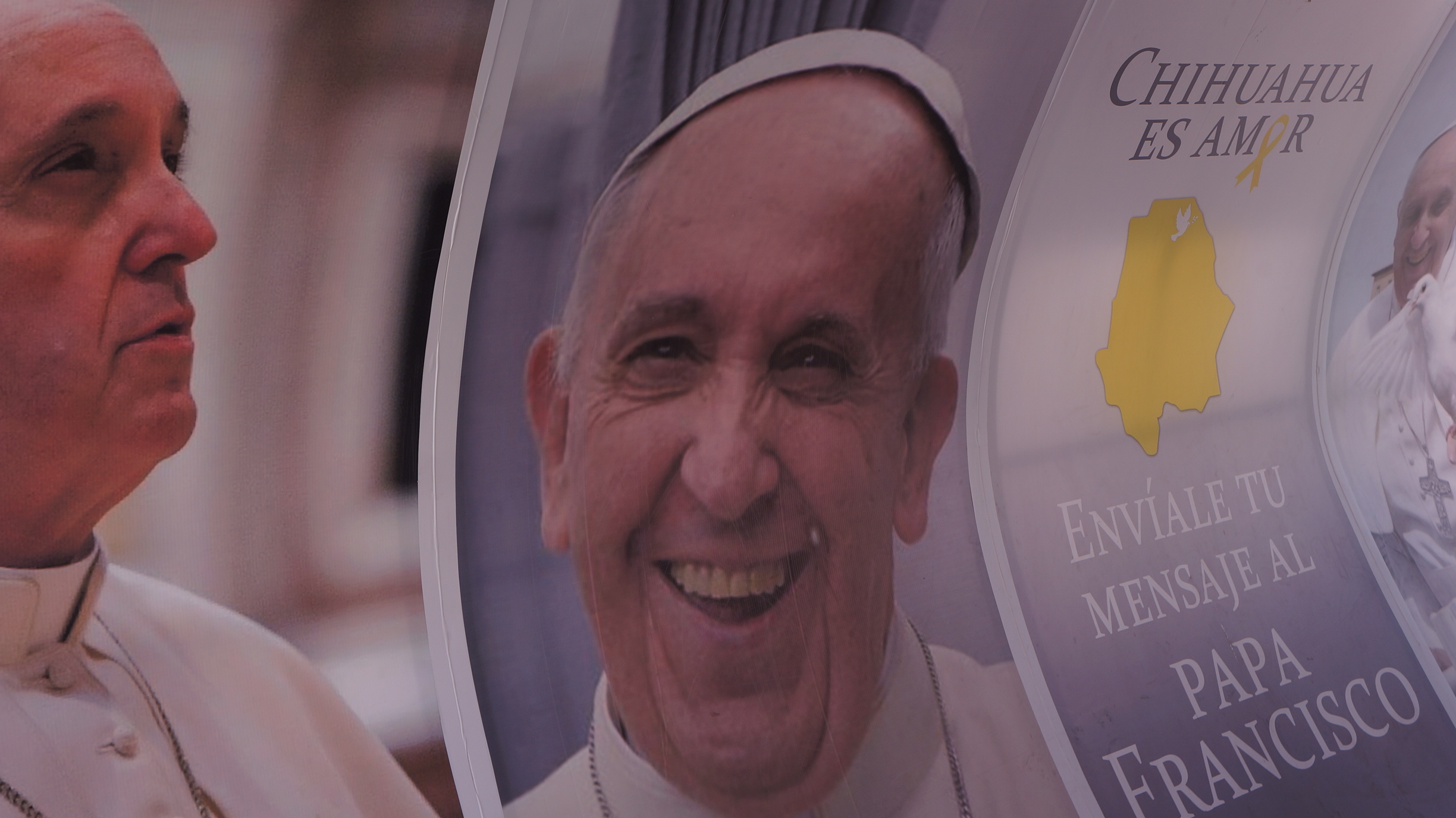
KL: Shortly after the Pope’s visit, there is a presidential primary coming up. March 1st. Have you endorsed a candidate yet?
BOR: No. I haven’t. I’m listening and I’m really interested to hear how they will address the issues that the community I represent really care about. Some we discussed. Bilateral relations. The nature of our relationship with Mexico. The border. And some we haven’t, like [veterans’ affairs] and the large number of veterans here, and issues connected to that…
KL: You’ve been very critical of the drug war. You’ve written a lot about this. I think the conventional wisdom now is that it has been a failure on the demand side.
You’re a relatively new congressman. Has it surprised you that it’s taken so long to affect change on this issue? And we are still only in the beginning stages of dismantling decades of bad policy on the drug war?
BOR: Yes.
I mean, this is one where the people are way ahead of their representatives. Whether anecdotally, just talking to people, conservative and liberal alike, you’d be hard-pressed to find someone who thinks what we are doing is working.
The remedies for what we should do vary, but polling for the last couple of years show that many Americans want to end the prohibition on marijuana. Most states where people have been giving a chance to decide this by referendum or through their local State representatives, have decided to decriminalize, or medicinalize, or fully legalize marijuana. So it is not a matter of if, just when. And to appropriate a John Kerry line, ‘Who’s going to be the last kid in Juárez to die to bring a load of marijuana to the United States, when it is obviously going to be legal everywhere?’
The sooner we end the prohibition, regulate, control its sale, tax it, keep it out of the hands of kids more effectively than we are today, the better for our country, but also the better for Mexico, for Juárez, and by extension the better for El Paso.
I’m encouraged that people ‘get it’. I talk about this at the Rotary Club, the Lion’s Club, high schools, general town hall meetings. People there are just waiting for Congress and the administration to get it as well. I’m hopefully that as that wave crests popularly nationally that the courage will be found in Congress to do the right thing.
And I bet you a million dollars that if you were to privately poll the members of Congress, a supermajority think we should end the prohibition on marijuana.
Will it be in the next two years, or five years. I don’t know. But I think it will be relatively soon.
2 thoughts on “An interview with El Paso-area Congressman Beto O’Rourke”